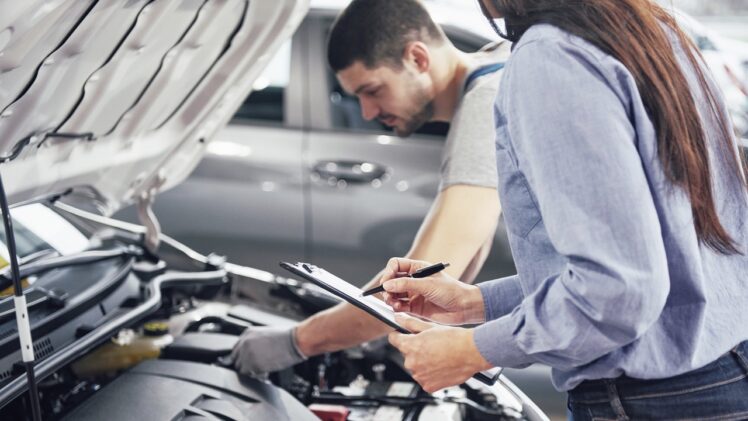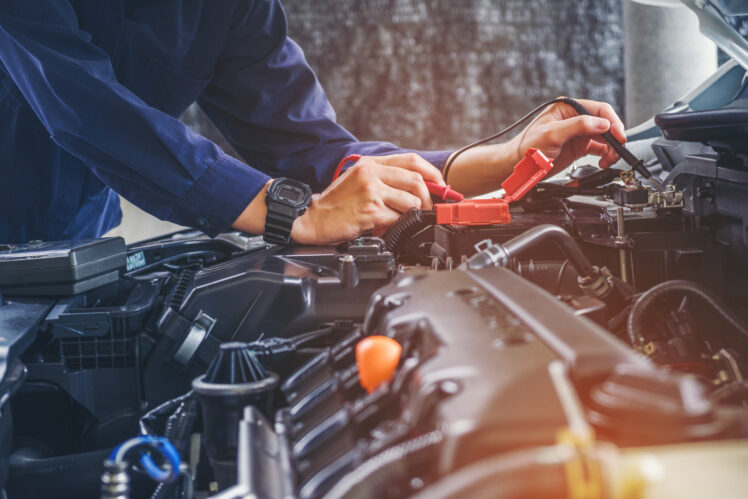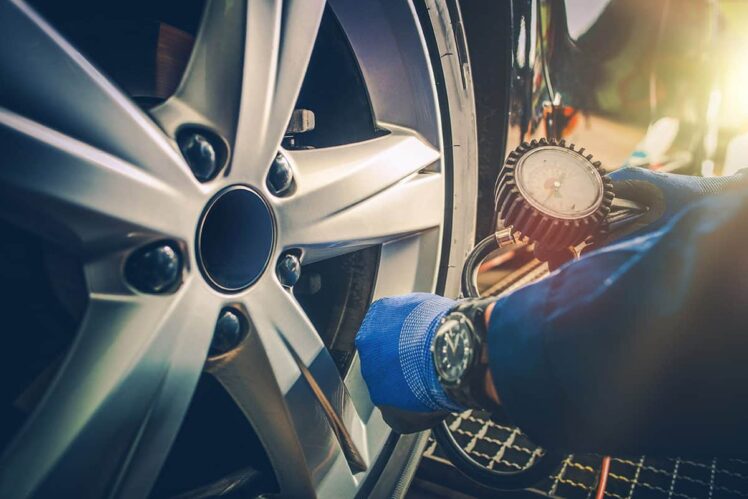Published on:
Buying a car is one of the biggest expenses that people have in life, and owning a car is not cheap either. Many people spend more on vehicles than they should, so take a look at some car maintenance tips that you should follow.
Contents
The Importance Of Regular Vehicle Maintenance

In order for the vehicle to function as intended – many moving parts work in the correlation. These parts affect each other and wear over time. If car maintenance is neglected, you can lose much more than you will save by postponing a visit to a car mechanic. He who does not pay immediately – will pay more later. This is a principle that fits this case perfectly. Let’s just take an oil change, for example – because this is one of the simplest measures to maintain a vehicle. If you do not change it on time, you risk a complete blockage of the engine.
You can count on burnt oil and likely the replacement of the entire engine. Regular vehicle maintenance will not only reduce your costs in the long run – but will also make you safe. You will also increase the value of reselling the vehicle because it will be easier to sell a preserved car – and you will not have to call the purchasers of the vehicle.
Basic Things You Need To Know When Having A Car

Before we get started with vehicle maintenance tips, we need to mention two basic things you need to know to minimize the cost of owning a car.
Check the vehicle regularly
The manufacturer’s manual will be your favorite book about your vehicle. It lists everything you need to know about your four-wheeler, what oil you need to pour, what brake fluid, how much tire pressure there should be, or when to replace all the other little things that make maintenance easier. However, the catch is that the manufacturer cannot predict all situations in the real world.
The instruction was written based on information obtained by laboratory testing. This means that the environment is quite controlled and does not correspond in every sense of reality. Therefore, it is necessary to follow the manufacturer’s instructions, but not to follow them blindly, but to check certain parameters yourself.
Learn to listen to your vehicle
Vehicles still can’t speak, but that doesn’t stop them from communicating with us. When you bought the car, we assumed it was in good condition. When something is wrong, there will certainly be sounds that have not appeared before – and with a little research you will find out what that sound could mean. In addition to listening, the car’s computer can give you secrets about the lights on the control panel. If a light comes on, you can do the diagnostics yourself using the OBD II adapter and smartphone. This will save you extra money because you will not have to go to the service every time something lights up that you don’t need.
5 Car Maintenance Tips You Must Follow
Now that you know the basics of proper maintenance, read additional tips on proper car maintenance.
1. Clean it regularly
Regular cleaning of your car can prolong its life because you will protect it from rust. Most modern cars have a self-supporting chassis (unibody) – which means that the body itself is the carrier of the entire vehicle structure. Wash the car regularly, keep it in the garage if you have it – a repair even the slightest damage you notice on the body. According to washatwork.de, keeping the interior clean can raise the price of your car if you decide to sell it.
2. Change the filters regularly
Most cars have oil, fuel, air, and cabin filters in their system. Each of these filters has its function and replacement interval. The oil filter is changed each time the oil is changed. By replacing the fuel and air filters in the foreseeable period you ensure maximum fuel consumption efficiency, because the combustion in the chamber will be more complete, a larger amount of energy will be released, which will reduce fuel consumption.
3. Tire maintenance
If your car is well centered and that there is no uneven tread wear. However, in addition to that – it is known that the front tires wear more than the rear ones. That is why it is necessary to replace them from time to time, and you can find out in the manufacturer’s instructions (we hope you can replace them). Pay attention to the pressure in the tires, you can find this information in the manual, and often on the perimeter of the driver’s door. Optimal tire pressure reduces fuel consumption and provides more control over the vehicle.

4. Save the battery
The battery powers the car’s ignition starter and all other electronics until the alternator takes over. What does it mean? You will save battery by avoiding using electronics before you go, which includes radio, lights, air conditioning, and other energy consumers. Clean the terminals of dust and rust, as deposits on them, can cause interference with the battery. Occasionally take longer rides (20 minutes or more) to charge the battery.
5. Check fluids and oils
Different systems in cars use different fluids. The engine uses oil to lubricate all moving parts – and in addition to changing it regularly, it is also necessary to check its quantity. You can do this with a needle to check the oil level. When the vehicle is parked on a flat surface, pull out the needle, wipe it with a cloth, and put it back – so you know how much oil is in the crankcase.
The brake fluid is hygroscopic, which means that it absorbs moisture over time and loses its function. It changes every three to four years or when the amount of water exceeds the recommended level (which is checked through a special device). Also, check that the cooling fluid is at the optimum level to prevent the engine from overheating. The coolant is a mixture of distilled water and antifreeze.
Share With Your Friends
